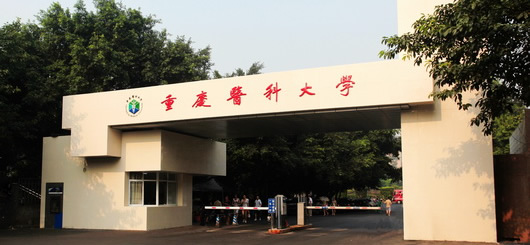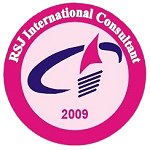Introduction to Chongqing Medical University
CQMU is a state key university under the administration of the Chongqing Municipal Government with an integrated educational system of baccalaureate, masters, doctoral, and postdoctoral programs in medicine as well as other health-related fields.
It is one of approximately 30 medical universities in China that are approved by the Chinese Ministry of Education to enroll foreign students into the English-medium Bachelor of Medicine & Bachelor of Surgery program. It is recognized by the World Health Organization (WHO) and the ECFMG (Educational Committee for Foreign Medical Graduates) in the United States.


About CQMU
Chongqing Medical University (CQMU), originally known as Chongqing Medical College, was founded in 1956, growing out of Shanghai First Medical College (the present Shanghai Medical College of Fudan University). With nearly 60 years of development, CQMU has become a major public medical university that is jointly administrated and supported by the Ministry of Education of China and the Ministry of Health of China as well as Chongqing Municipal Government. The university has a comprehensive system of academic training, from Bachelor to Master, Doctor, and Postdoctoral in medicine as well as other related fields. In2013, CQMU ranks the 6th among all medical universities in China. Regarding graduate education and discipline competitiveness, our university ranks the 12thamong all Chinese universities offering medical disciplines.
With 19 colleges and departments, a Graduate School and an Institute of Life Sciences, CQMU offers 7 postdoctoral programs, 38 Ph.D. programs, 86 Master’s programs and 27 specialties for undergraduates. There are 218 Ph.D. supervisors. At present, a total of over 27,000 students are studying in the university, including over 500 Ph.D. students, about 4,200 postgraduates, over 20,000 undergraduate students and over 600 foreign students from 20 countries.
There are 6 affiliated hospitals directly under its administration, which are all rated as “Upper First-class Hospital (3A)” in China. There are more than 10,000 beds in the hospitals. The annual outpatient visits reach 7.9 million and the annual inpatient visits reach 390,000. Besides, the university has more than 30 teaching hospitals and other 9 affiliated hospitals indirectly under its administration. The other 3 affiliated hospitals are now under construction.
CQMU has accomplished many research projects of various levels, including some state-level projects supported by National Basic Research Program (known as 973 Program), National Hi-Tech Research and Development Program (known as 863 Program), Key Program of National Natural Science Foundation. CQMU ranks the 47th in all the universities regarding the publication in core journals in China.
About Chongqing
The world’s largest inland port city, Chongqing is located in Southwestern China where the Yangtze and Jialing Rivers meet. It is one of five principal cities, and the only municipality in Western China directly administered by the Central Government. Chongqing is known for its hot springs, a collection of bridges, local cuisine, and scenic night views.
The average annual temperature in Chongqing is 18℃. January is the coldest month, at an average of 7℃; July and August is the hot season, normally between 27℃-38℃. Chongqing is a humid city. Summer and autumn are the rainy seasons. The annual rainfall is 1,000-1,100mm.
Chongqing is noted for its rich culture and history. The city was founded nearly 3000 years ago when the Ba-Yu civilization first established itself here. Later, during the Song Dynasty, the city was named Chongqing which in Chinese means “Double Happiness.”
In today’s Chongqing, you can see the fusion of old and new, modern and traditional. Porters, using the same techniques from centuries ago, swiftly carry their packs up the city’s meandering steps, and ferry boats move slowly downriver. These glimpses of old China are slowly giving way to 21st-century life.














